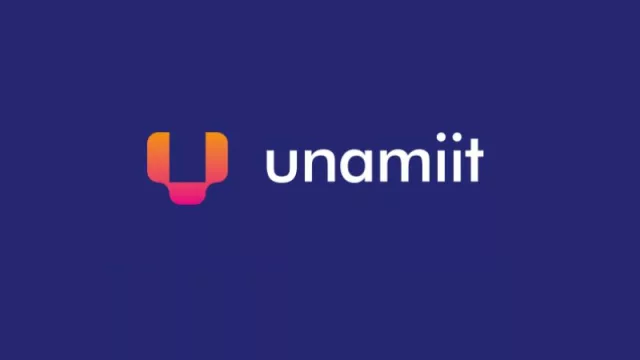Executing a comprehensive alliance and joining forces is truly a winning strategy. It requires the development of strong human competencies, soft skills, and a great inclination for co-creation. It involves knowing how to listen, how to converse, and above all, not being "closed-minded."
When you sit down to listen to unamiit's members, you are filled with hope and motivation. You literally see five owners who have come together for a common cause that synergizes and empowers them, and who genuinely work as a team.
So one might think... shouldn't it always be like this? What would happen if there were more cooperation in the advertising industry to internationalize services (especially in independent agencies)? And in the logistics service industry or in the craft beer and gin production industry, or even in every industry, for that matter?
unamiit, a brilliant name:
It emerged from the phrase "hacemos una meet" (we have a meet), during the pandemic, as a quest to join forces to grow and be present in international markets every day. It's a name that says it all and is the perfect synthesis of cooperation among the following companies:
-
Fuzzy Fish
-
Extrados
-
Darworft
-
IThreex Global
-
Ayi group
These companies synergistically provide the following services with excellence:
-
Digital transformation
-
Data analytics services
-
Internet of things (IoT) development
-
Artificial intelligence and big data
-
System integration
-
Blockchain
-
Cloud native
-
Mobile app development
-
Machine learning
Why is the case of unamiit so valuable?
For startups, SMEs, small producers, and small tech companies to make a significant leap in their development, the strategy of alliances and cooperation is an extremely intelligent way to accelerate growth, but in a comprehensive manner, not just limited to tech development. The truth is that this breadth and solidity of cooperation are rarely executed. Often, it remains merely formal, with few cases of comprehensive, creative, and cooperative work.
Yes, we know that there are meetings, networking events, and collaborations, but truly being COCREATORS in cooperation, like the group of Argentinean tech companies in unamiit, is indeed rare in the world.
United for excellence, expansion, and internationalization:
unamiit, one for all and all for one. The pursuit of genuine alliances:
Alliances are agreements between two or more emerging companies with the goal of leveraging each other's strengths and resources to achieve mutual benefits. Through these alliances, startups can strengthen their position in the market, enhance their brand, share knowledge and expertise, access new markets and customers, and achieve faster and sustainable growth.
unamiit is an example of intelligent management. Startups increasingly need to seek international markets. For them, comprehensive marketing (not just digital), customer service logistics, scalability, and customized product development are crucial. The combination of services (cross) is also vital. That's why unamiit's cooperative strategy is so smart. Here's a phrase, a summary that demonstrates their product vision:
"For the retail industry, we have expanded a line of plug and play products based on AI for e-commerce."
You can find more here.
To bring together five talented leaders and companies and have them truly work side by side, there must be something truly remarkable, a sense of humility, and an understanding that together is better.
Five is the magic number:
We spoke with their key representatives in Miami, at the prestigious Emerge fair, and they told us about the importance of this almost ideal number for conducting such alliances. When it comes to successful strategic alliances in the tech and Latin American business sectors, there are several notable examples:
-
Rappi and Grupo Aval: Rappi, a Colombian delivery startup, partnered with Grupo Aval, one of the leading financial groups in Latin America. This alliance allowed Rappi to offer financial services to its users, such as loans and credit cards, expanding their offerings and capturing a wider market segment.
-
Nubank and Tencent: Nubank, a Brazilian fintech company, joined forces with Tencent, one of China's largest technology companies. This collaboration enabled Nubank to benefit from Tencent's experience and resources to expand its presence in the Latin American market and provide innovative financial services to its customers.
-
Mercado Libre and PayPal: Mercado Libre, the leading e-commerce company in Latin America, partnered with PayPal, a renowned online payment platform. This alliance allowed Mercado Libre users to access PayPal's services, expanding payment options and enhancing the online shopping experience. Today, Mercado Libre has undergone significant development of its own.
Tomorrow, in Infonegocios Miami, we will continue telling you more about unamiit and the startups that aim to expand their markets, using Miami as a bridge that connects them with the English-speaking Latin market and projects them onto the world stage.












Tu opinión enriquece este artículo: